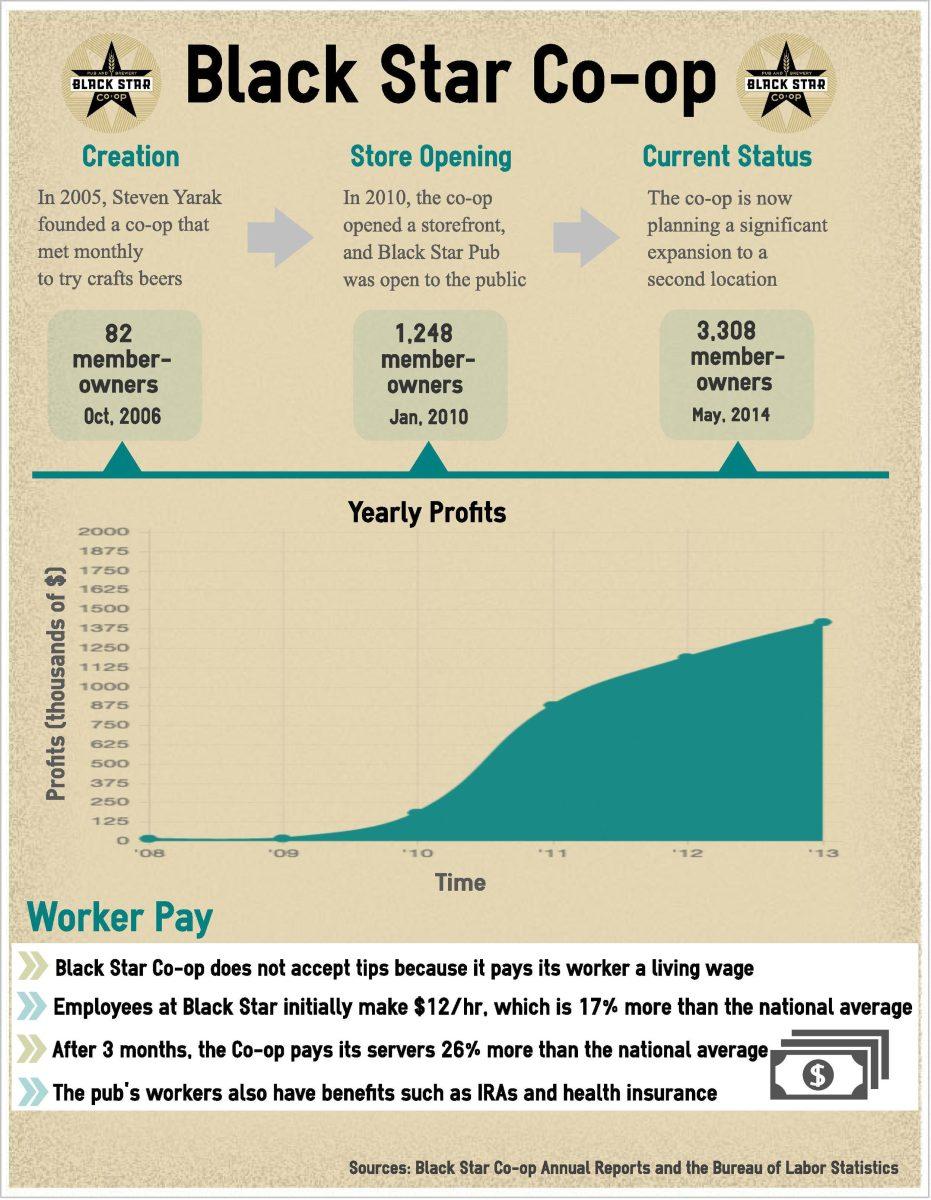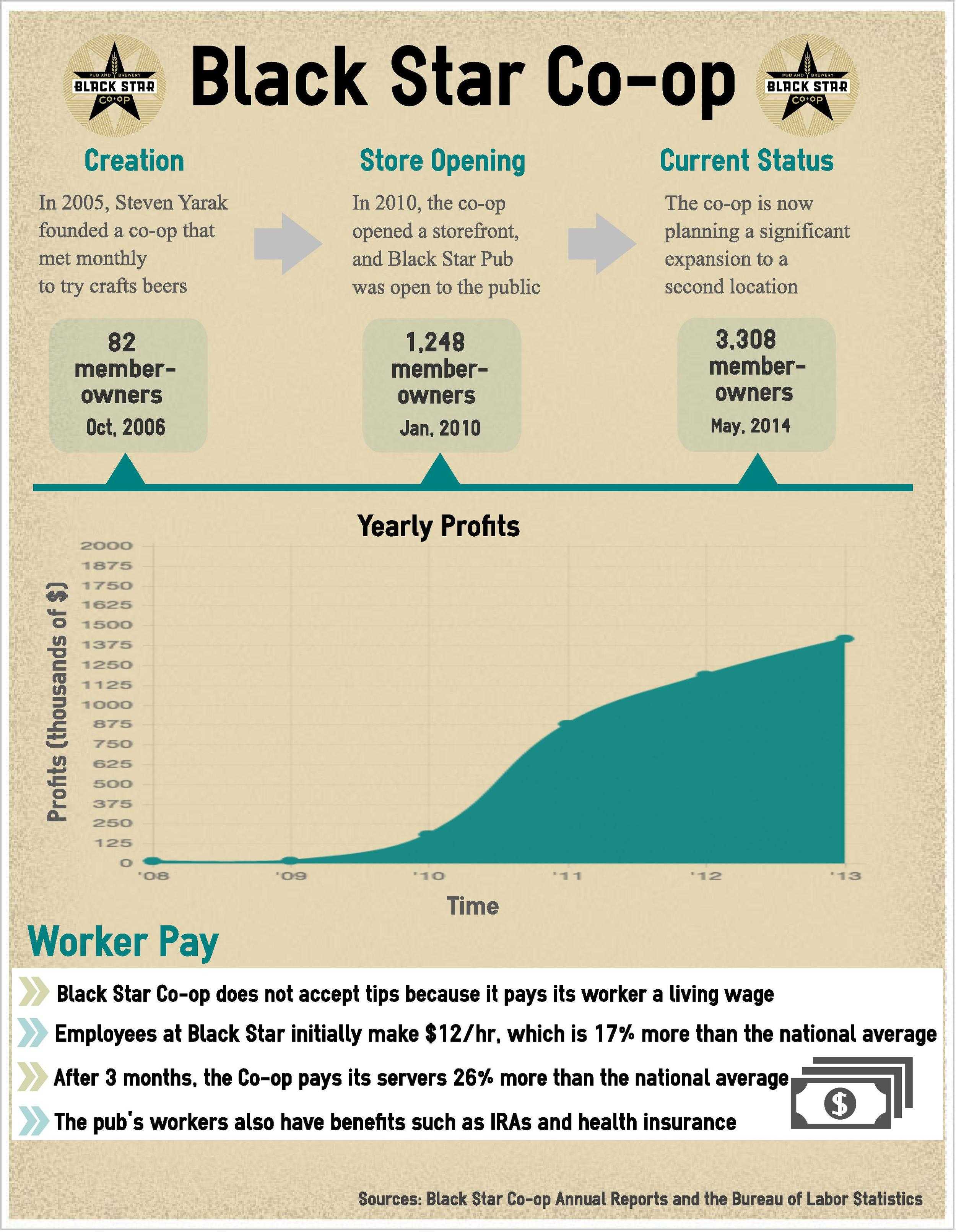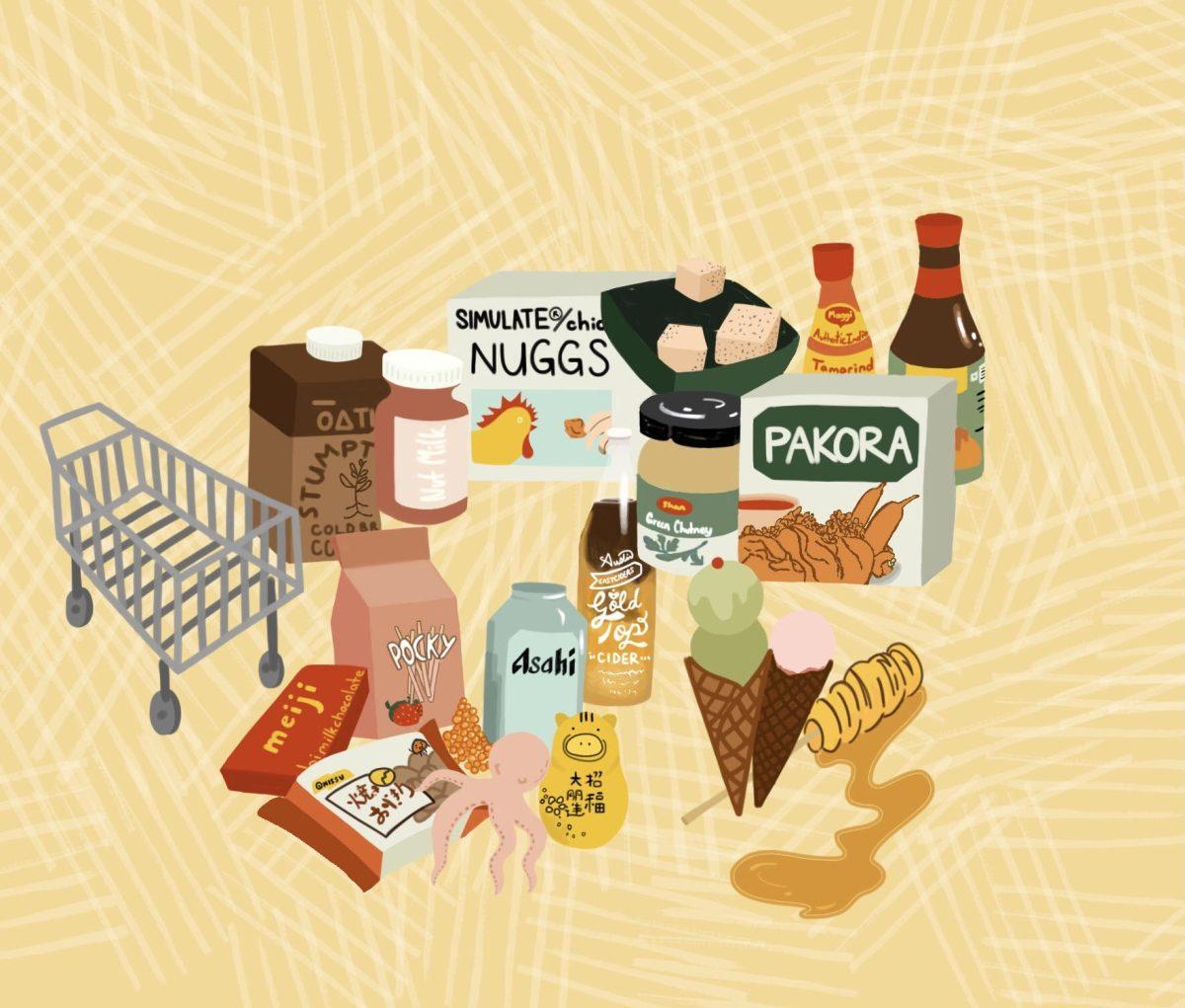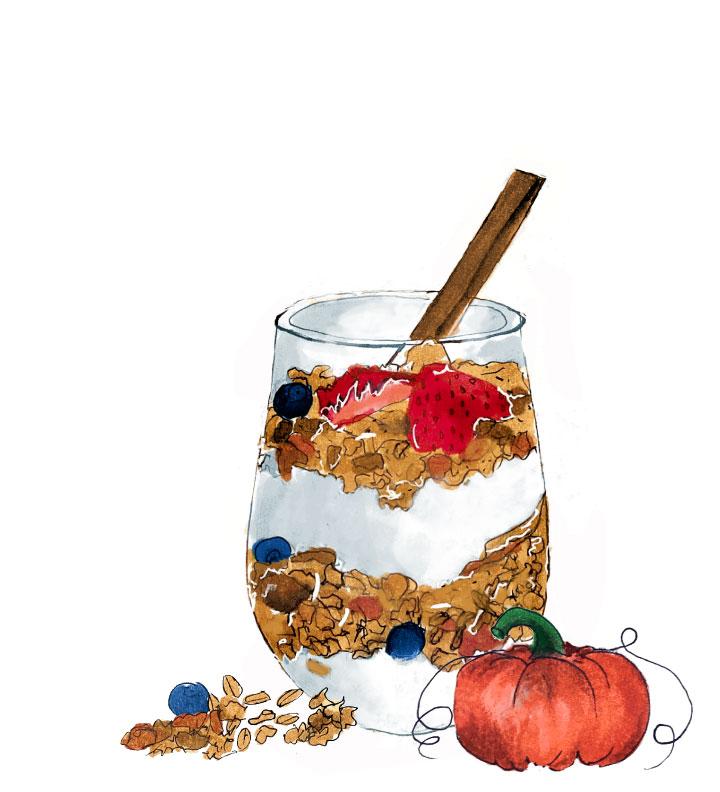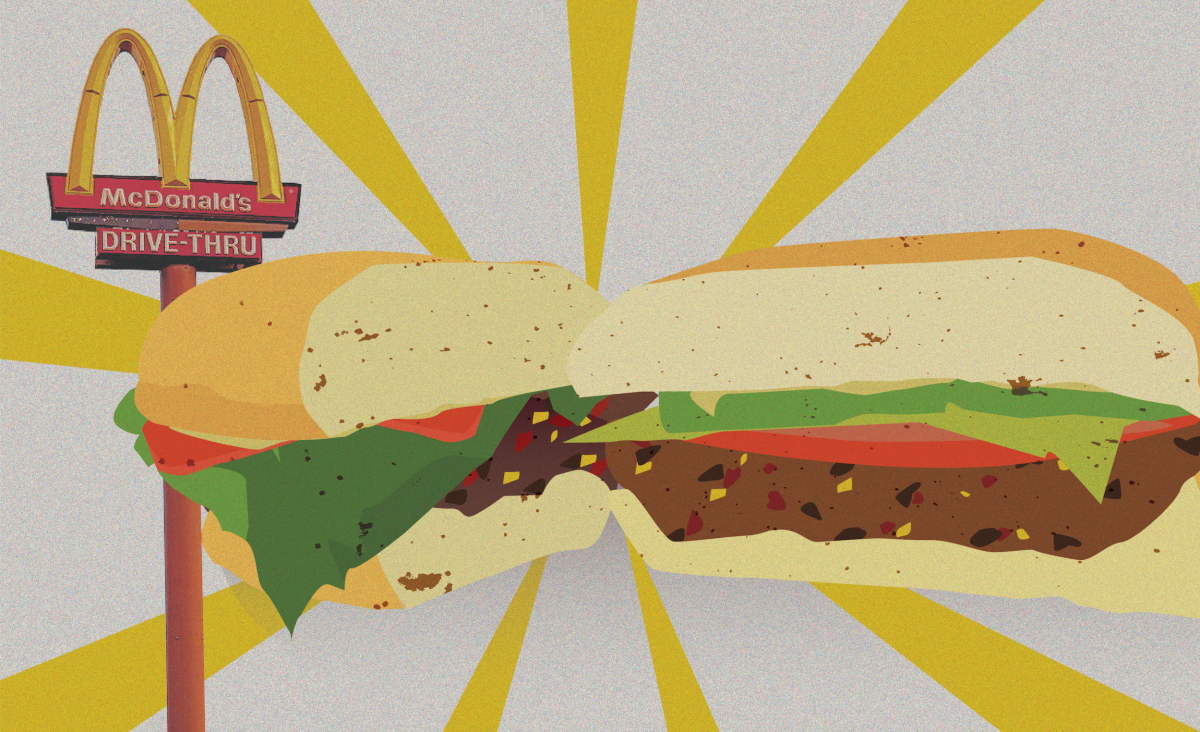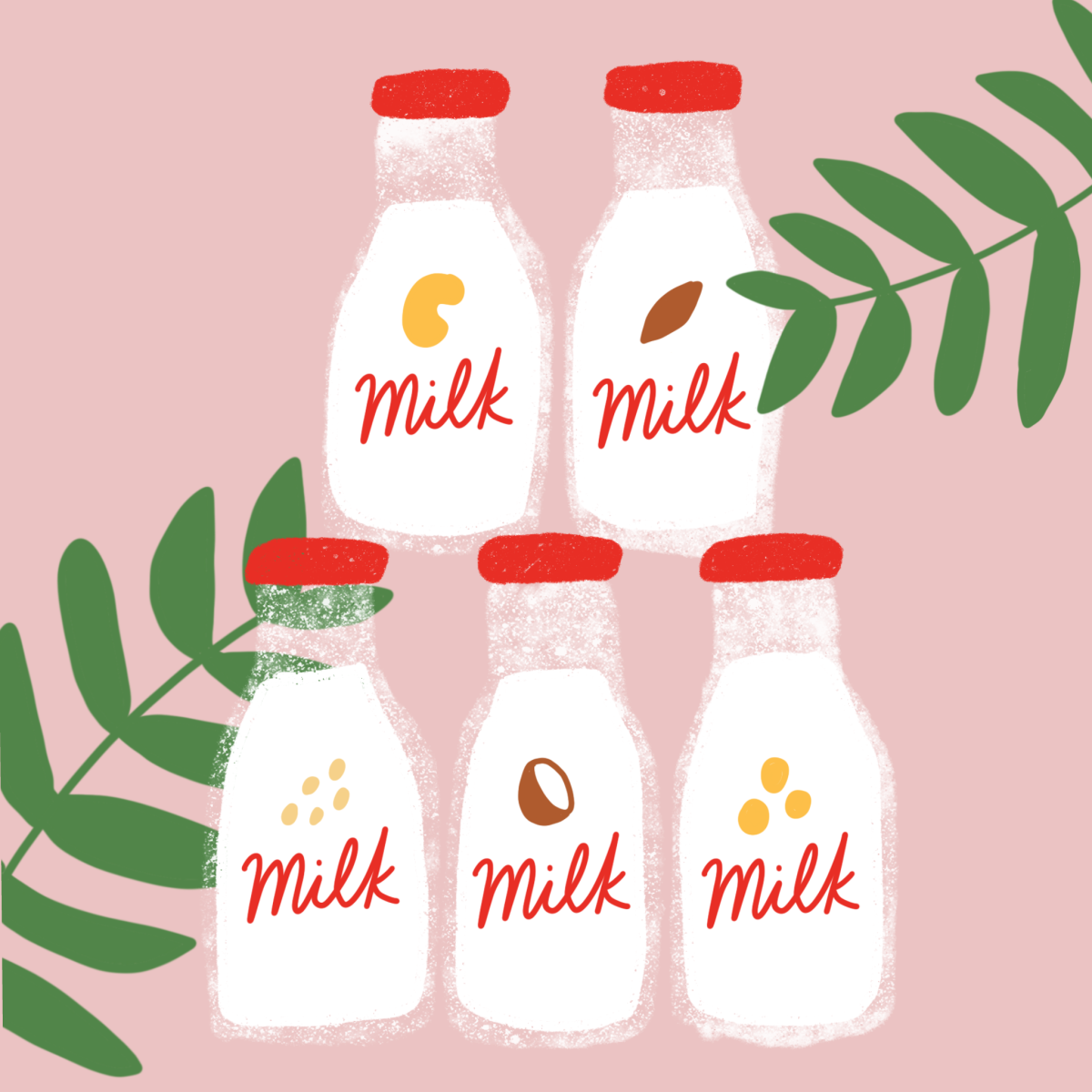By Darby Kendall
When a customer walks into Black Star Co-op, at first it seems like any other beer and local food joint. After indulging in their meal, gulping down a nice ale and conversing with friends, customers get the check and realize what makes Black Star Co-op so unique. With over 3,000 co-owners and a no-tipping policy, Black Star’s business model helps set it apart from other restaurants in Austin.
Black Star, a restaurant and cooperatively owned pub on North Lamar, pays its employees a high set hourly wage, and they don’t have to rely on guests to cover the rest of their paycheck with tips.
Business team member and employee Nicole Renaux says she appreciates that the pub pays a high hourly wage. “We wanted to pay more than the typical food industry, which pays pretty poorly,” Renaux says. “Our intention was to make a fair wage for our workers.”
According to the Bureau of Labor Statistics, waiters and waitresses make on average $10.04 an hour after tips and $20,880 yearly.
Renaux says that starting pay at the co-op is $12 an hour and then increases to $13.50 after three months there and continues to increase over time. In a server’s first year at Black Star, Renaux averaged that they would make around $28,000, which is $7,000 more than the national average. Employees at Black Star Co-op also have benefits like health insurance and IRAs. “I’ve worked in the food industry for over 10 years, and I’ve never had a job like this one,” Renaux says.
One main reason why Black Star pays living wages is because it is cooperatively owned. Members of the public can buy into the pub for a one-time fee of $150.Over 3,000 people co-own Black Star today. Once the fee is paid, member-owners not only get discounts and free tastings, but they also have a say in how the company is run.
Steve Basile, a member-owner of Black Star who joined up in 2006, says that it had always been the intention of the original member-owners to pay the employees well. “When people come into the pub for the first time and find out they can’t give tips, it’s eye-opening for them,” Basile says. “They have a first ‘oh,’ and then another, like a double reaction of ‘oh wow, that’s kind of cool.’”
Occasionally, customers are disappointed that they cannot leave tips as a sign of satisfaction. The pub decided to let them tip and then donate the extra money to a different organization every quarter. Last round, the donation was given to Austin Pets Alive. “It’s a good way to satisfy people who are hell-bent on tipping,” Basile says.
To make up for paying their workers better, Black Star has adjusted the prices on their menu accordingly. Basile says that Black Star’s menu prices are similar to other pubs’, and his bill at the co-op is sometimes less than what he would pay after a tip at other restaurants. With a 773% increase in revenue since it opened its doors in 2010, it is clear that Black Star has not suffered financially because of its unconventional wage structure. “Because Black Star pays a living wage, the people who are serving you are in a good mood,” Basile says. “You can get a beer anywhere, but the atmosphere here is just different.”































